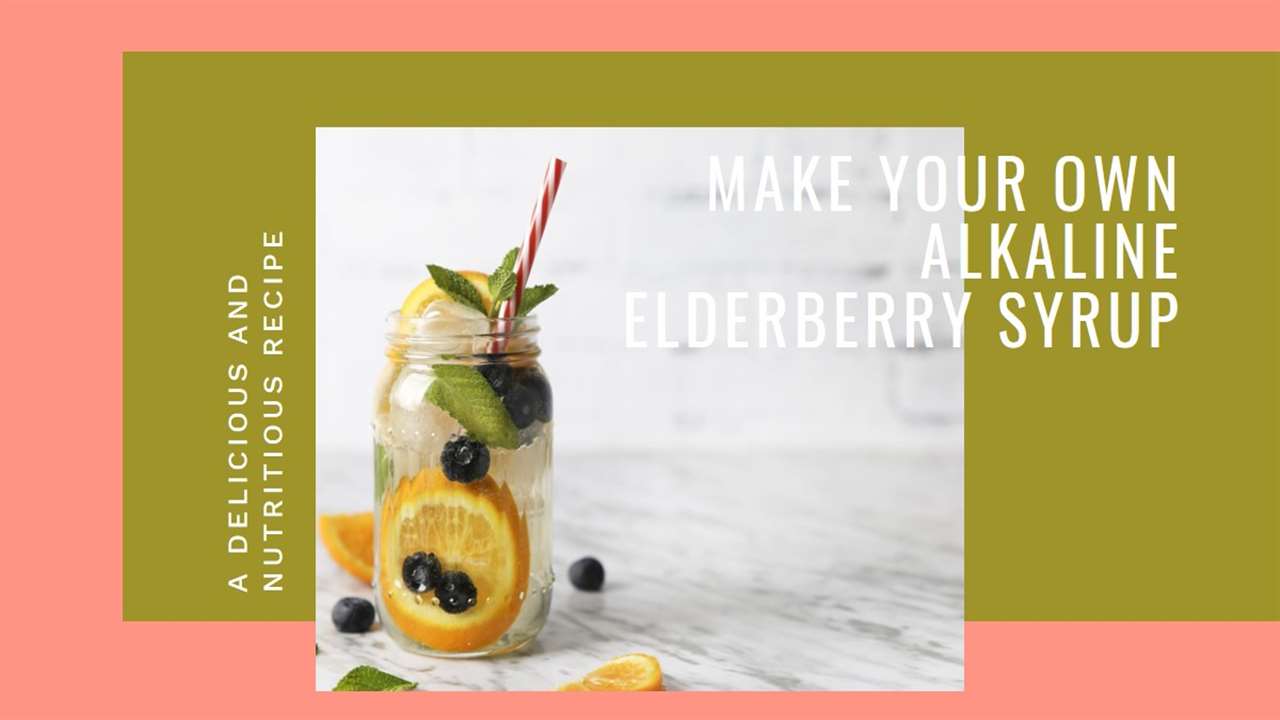Hey there, health-conscious readers! Are you on the lookout for a natural immune system booster that’s both delicious and easy to make? Look no further than this alkaline elderberry syrup recipe! Packed with antioxidants and immune-boosting properties, elderberry syrup has been a staple in traditional medicine for centuries. In this article, we’ll delve into the benefits of elderberries, explore the alkaline approach to health, and walk you through a simple recipe to make your own alkaline elderberry syrup at home.
The Power of Elderberries
Elderberries, the fruit of the elder tree, have long been revered for their medicinal properties. These small, dark purple berries are rich in antioxidants, vitamins, and minerals that can help strengthen the immune system and fight off illness. Research suggests that elderberries may help reduce the duration and severity of colds and flu, thanks to their high levels of vitamin C and flavonoids.
Understanding Alkaline Health
Before we dive into the recipe, let’s take a moment to discuss the alkaline approach to health. The concept of alkaline health is based on the idea that maintaining a slightly alkaline pH level in the body can promote overall well-being and prevent disease. While the body naturally regulates its pH levels, some believe that consuming alkaline foods and beverages can support this process and improve health outcomes.
The Benefits of Alkaline Foods
Alkaline foods are those that have a pH level higher than 7. These include fruits, vegetables, nuts, seeds, and certain grains. Proponents of the alkaline diet claim that consuming these foods can help reduce inflammation, promote detoxification, and support optimal health. While more research is needed to fully understand the effects of alkaline foods on the body, incorporating them into your diet can be a tasty way to boost your overall wellness.
Recipe: Alkaline Elderberry Syrup
Now, let’s get to the fun part: making your own alkaline elderberry syrup! Here’s what you’ll need:
- 1 cup dried elderberries
- 4 cups filtered water
- 1 tablespoon fresh ginger, grated
- 1 cinnamon stick
- 1 cup raw honey (optional, for sweetness)
Instructions:
- In a medium saucepan, combine the elderberries, water, ginger, and cinnamon stick.
- Bring the mixture to a boil, then reduce the heat and let it simmer for 45 minutes to 1 hour, until the liquid has reduced by half.
- Remove the saucepan from the heat and let the mixture cool slightly.
- Strain the mixture through a fine mesh sieve or cheesecloth into a clean glass jar.
- If using honey, stir it into the strained liquid until fully incorporated.
- Store the elderberry syrup in the refrigerator for up to 2 weeks.
Conclusion
Incorporating alkaline foods into your diet is a delicious and nutritious way to support your overall health, and this alkaline elderberry syrup is a perfect example. By harnessing the power of elderberries and other alkaline ingredients, you can create a natural immune system booster that tastes great and helps keep you feeling your best. So why not give it a try? Your body will thank you!
For more ideas, recipes, and cooking tips and tricks, please visit us at My Mom Said the Brand.
FAQs About Alkaline Elderberry Syrup Recipe
1. Can I use fresh elderberries instead of dried ones?
Absolutely! If you have access to fresh elderberries, feel free to use them in place of dried ones. Just be sure to adjust the quantity accordingly, as fresh berries may have a higher water content.
2. Is it safe to consume elderberry syrup every day?
While elderberry syrup is generally safe for most people, it’s always a good idea to consult with a healthcare professional before making any significant changes to your diet or supplement routine, especially if you have any underlying health conditions or are taking medications.
3. Can I use maple syrup or another sweetener instead of honey?
Yes, you can substitute maple syrup or another sweetener of your choice for honey if you prefer. Just keep in mind that different sweeteners may alter the taste slightly, so you may need to adjust the amount to suit your preferences.
4. Are there any side effects of consuming elderberry syrup?
In rare cases, some individuals may experience mild digestive upset or allergic reactions to elderberries. If you experience any adverse effects after consuming elderberry syrup, discontinue use and consult with a healthcare professional.
5. Can I use the leftover elderberry pulp for anything?
Absolutely! The leftover elderberry pulp can be used to make homemade jams, jellies, or even added to smoothies for an extra nutritional boost. Don’t let it go to waste!

